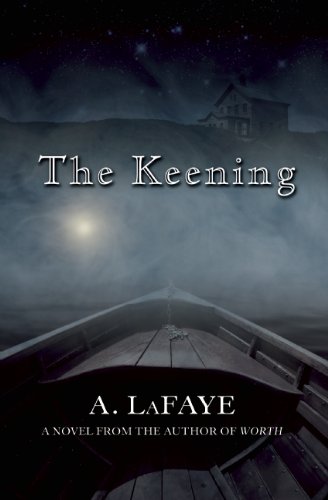The Keening
Lyza’s father is not like other fathers. He doesn’t speak much, and he has to be coaxed to eat when he is in the throes of sculpting and carving. He doesn’t seem terribly attached to the workaday world. Lyza’s mother is conventional enough to teach Lyza household basics, but she also teaches Lyza so much more. She does so when the other pupils at school tease Lyza cruelly about her father, and Lyza decides that she won’t return. The family lives happily, though unconventionally, on a bluff outside a small coastal Maine village. Lyza notes the funeral processions of influenza victims that pass by her house, and soon the illness tragically strikes her family. Lyza has to try and save her father from being committed to an asylum, and along the way, she learns much more about him, and about the most unusual abilities they share.
Although the story is set in 1918, and contains elements central to that time, it almost feels as if the story exists in its own world. Some of this is due to the remote setting and the tightly bound nuclear family, but it is more than that. The author has created an ethereal atmosphere that envelops the characters, and the reader with them.










